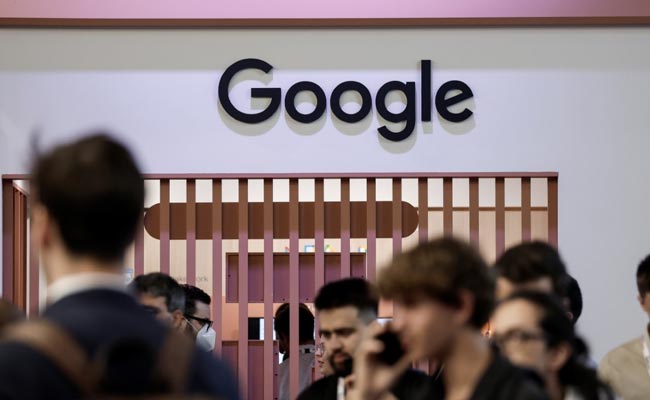Google Told Employees To Destroy Messages To Avoid Antitrust Suits: Report
Even as Google, the internet giant, stored the world's information, it kept a lid on its internal communications - telling employees to destroy messages, to not use certain words - to avoid antitrust suits, claimed a report.

Join our WhatsApp Community to receive travel deals, free stays, and special offers!
- Join Now -
Join our WhatsApp Community to receive travel deals, free stays, and special offers!
- Join Now -
Even as Google, the internet giant, stored the world's information, it kept a lid on its internal communications - telling employees to destroy messages and not use certain words - to avoid antitrust suits, claimed a report.
The company has been deploying such strategies since 2008, when it faced antitrust scrutiny over an advertising deal with its then-rival Yahoo and sent out a confidential memo to its employees, a New York Times report said.
"Google said employees should refrain from speculation and sarcasm and think twice before writing one another about hot topics," said the report, adding that the employees were asked to not comment before they have "all the facts".
The technology, said the Times, was tweaked, too. "The setting for the company's instant messaging tool was changed to "off the record." An incautious phrase would be wiped the next day," it said.
"How Google developed this distrustful culture was pieced together from hundreds of documents and exhibits, as well as witness testimony, in three antitrust trials against the Silicon Valley company over the last year," said the report.
The testimony showed that Google took numerous steps to keep a lid on internal communication, it said.
"It encouraged employees to put 'attorney-client privileged' on documents and to always add a Google lawyer to the list of recipients, even if no legal questions were involved and the lawyer never responded," said the report.
Companies anticipating litigation are required to preserve documents, mandate the US laws. "But Google exempted instant messaging from automatic legal holds. If workers were involved in a lawsuit, it was up to them to turn their chat history on. From the evidence in the trials, few did," the report said.
Google has faced the broadest criticism for its actions, with the judges in all three antitrust cases chastising the company for its communications practices, said the report.
"Judge James Donato of the US District Court for the Northern District of California, who presided over the Epic (2020 Epic Games) case, said that there was 'an ingrained systemic culture of suppression of relevant evidence within Google' and that the company's behavior was 'a frontal assault on the fair administration of justice,'" the report said.
In another case involving the company's advertising technology, a district court judge in Virginia remarked that Google's document retention policies were designed in a way that an "awful lot of evidence has likely been destroyed".
Google produced 13 times as many emails as the average company per employee did before it was a decade old, Kent Walker, Google's top lawyer, testified in the Epic trial, said the report. Google felt overwhelmed, he said, and it was clear to the company that things would only become worse if changes weren't made, the report said quoting him.
The 2008 memo that said chat messages would be automatically purged was signed by Mr. Walker and Bill Coughran, an engineering executive.
Mr Walker, said the report, was asked to explain Google's behaviour to the judge. He denied that there was "a culture of concealment" but said one problem was Googlers unsure of the meaning of certain words, the report said.
"Last year, Google changed its procedures. The default became saving everything, including chats. Employees on litigation holds can no longer turn chat history off," the report said further.









